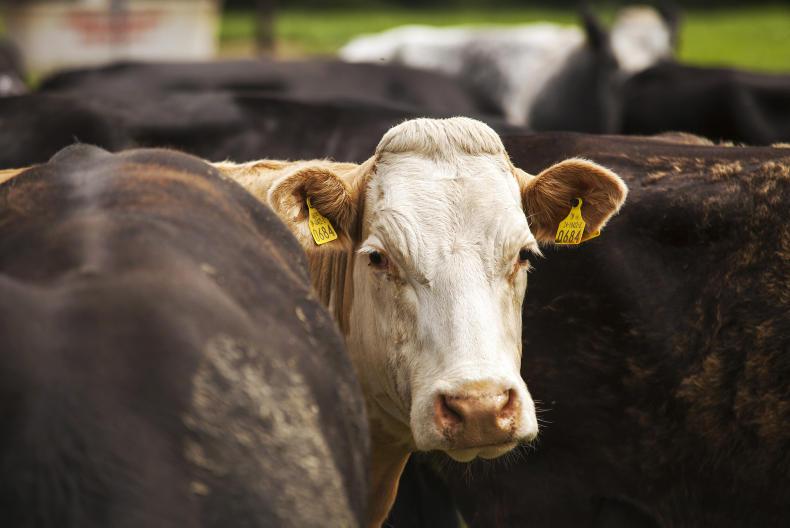RTÉ news released information from an unpublished Revenue report on Sunday, which outlined the impossibility of an open customs border after the UK leaves the EU in March 2019.
Currently, imports and exports between the UK and other EU countries are not subject to tariffs because the UK is still a member state, but this will change post-Brexit and the UK will have to negotiate new trade agreements.
Trade with Ireland
Ireland currently exports over 50% of its beef to the UK, and it accounts for 60% of our cheese exports in terms of volume. A change in the customs border with the addition of import and export tariffs on agricultural goods post-Brexit will have a huge impact on Irish agriculture.
The report places special emphasis on the National Ploughing Championships, saying, “a significant volume of equipment is moved into Ireland from Northern Ireland and the UK for the duration of the event. If the UK were no longer in the EU, all of these products would need to be declared under the Temporary Importation Procedure with guarantees of ATA carnets required for the period of importation.”
Border checks
Revenue, ports and airports and An Post will all incur major additional staffing and administrative costs, as goods will need to pass through special customs checks.
The report outlines that up to 13,000 commercial vehicles cross the border every day and there is currently no system in place to stop and check all the goods these vehicles are carrying.
It also outlines the problems that construction companies will face on the border with tools frequently crossing the border daily. But it does not seem to take into account farmers with land straddling both sides of the border will face.
The Revenue had undertaken earlier this year to find ways of creating frictionless cross-border checks, such as electronic licence plate reading. The Revenue’s efforts were called to a halt by An Taoiseach Leo Varadkar, who said, ‘We’re not going to be helping them (UK) to design some sort of border that we don’t believe should exist in the first place.’
Trade post-Brexit
The EU27 also backs the idea that the onus should be on the UK to negotiate their own trade deals and cross-border relationship with Ireland post-Brexit.
However, the UK cannot start negotiating any trade deals until they enter the second phase of talks on Brexit with the EU Commission, and last week the Commission announced that the UK had not made enough progress to advance to the second phase. This will ultimately hold up the UK’s trade talks, and the establishment of any kind of customs border with Ireland, as the deadline for exiting the EU approaches in March 2019.
Read more
The simple part of Brexit gets complicated
34 Irish companies at worlds largest food fair
RTÉ news released information from an unpublished Revenue report on Sunday, which outlined the impossibility of an open customs border after the UK leaves the EU in March 2019.
Currently, imports and exports between the UK and other EU countries are not subject to tariffs because the UK is still a member state, but this will change post-Brexit and the UK will have to negotiate new trade agreements.
Trade with Ireland
Ireland currently exports over 50% of its beef to the UK, and it accounts for 60% of our cheese exports in terms of volume. A change in the customs border with the addition of import and export tariffs on agricultural goods post-Brexit will have a huge impact on Irish agriculture.
The report places special emphasis on the National Ploughing Championships, saying, “a significant volume of equipment is moved into Ireland from Northern Ireland and the UK for the duration of the event. If the UK were no longer in the EU, all of these products would need to be declared under the Temporary Importation Procedure with guarantees of ATA carnets required for the period of importation.”
Border checks
Revenue, ports and airports and An Post will all incur major additional staffing and administrative costs, as goods will need to pass through special customs checks.
The report outlines that up to 13,000 commercial vehicles cross the border every day and there is currently no system in place to stop and check all the goods these vehicles are carrying.
It also outlines the problems that construction companies will face on the border with tools frequently crossing the border daily. But it does not seem to take into account farmers with land straddling both sides of the border will face.
The Revenue had undertaken earlier this year to find ways of creating frictionless cross-border checks, such as electronic licence plate reading. The Revenue’s efforts were called to a halt by An Taoiseach Leo Varadkar, who said, ‘We’re not going to be helping them (UK) to design some sort of border that we don’t believe should exist in the first place.’
Trade post-Brexit
The EU27 also backs the idea that the onus should be on the UK to negotiate their own trade deals and cross-border relationship with Ireland post-Brexit.
However, the UK cannot start negotiating any trade deals until they enter the second phase of talks on Brexit with the EU Commission, and last week the Commission announced that the UK had not made enough progress to advance to the second phase. This will ultimately hold up the UK’s trade talks, and the establishment of any kind of customs border with Ireland, as the deadline for exiting the EU approaches in March 2019.
Read more
The simple part of Brexit gets complicated
34 Irish companies at worlds largest food fair






 This is a subscriber-only article
This is a subscriber-only article










SHARING OPTIONS: